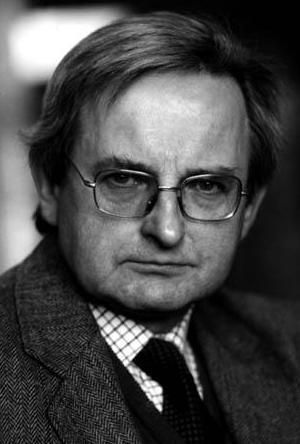1989
Our President in 1989/90 was:
Allan Massie
He proposed the Toast to Sir Walter at our 81st Annual Dinner on Friday 2nd March 1990 in the Playfair Upper Library, University of Edinburgh
Download the [transcript] or read the [bulletin]
Summary of the Speech:
Allan Massie opens by reflecting on the honour of serving as President, acknowledging the remarkable calibre of his predecessors, including prime ministers, judges, church leaders, and literary figures. He aligns himself with novelist-Presidents like John Buchan, Hugh Walpole, and Eric Linklater, and connects their craft to that of Scott—especially the challenges and addiction of novel-writing.
Massie argues that Scott's greatness lies in his wide and deep knowledge of life and humanity, and in his practical experience as a man of the world, not just a writer. This grounding made his characters authentic and relatable. Scott, Massie notes, was often criticised for being insufficiently “literary,” but Massie defends him as someone who valued life over art, quoting Scott's belief that "literature was a good staff, but an ill crutch."
He distinguishes between two kinds of novels:
- Self-enclosed novels (e.g., Wuthering Heights) that do not reference the wider world
- Open novels (e.g., Scott’s Waverley novels), where characters are shaped by historical forces
Massie praises Scott for embedding fiction within real historical context, giving his novels resonance and realism. He contrasts this with the view that fiction should be self-sufficient, calling such purism “an unattainable ambition.” He stresses that all readers and writers bring their own experiences to fiction.
A key theme is the “marriage” between imagination and reality—what goes on in the writer’s head versus what is observed in the world. Scott, he says, achieved this balance, with the view from his metaphorical window shaped by history and geography.
Scott’s influence, Massie asserts, was profound and international—on Stendhal, Balzac, Hugo, Dostoevsky, Lermontov, and especially Tolstoy, whose War and Peace would not exist without Scott’s example. He also draws links with Conrad, Gore Vidal, and even his own fiction.
Scott’s genius, he concludes, lies in how he used fiction to explore both the historical and the mysterious. Massie suggests that Scott’s greatness as a novelist stems from his ability to acknowledge the limits of understanding while conveying a sense of wonder and truth beyond rational explanation. The speech ends with a striking passage from The Heart of Midlothian about the mysterious character "The Whistler", illustrating Scott’s recurring theme of characters that defy comprehension but evoke deep emotion.
Notable and Interesting Points
- Presidential Roll Call: Massie names past Presidents including R.A. Butler, G.M. Trevelyan, Walter Elliot, and several Prime Ministers, using their stature to underline Scott’s lasting influence.
- "The View from the Window": A compelling metaphor for the fusion of inner vision and external reality in great writing.
- Middle Kingdom Concept: Scott is placed between genre fiction and high literature—inhabiting a "Middle Kingdom" that defies easy classification.
- Early formulation of Magic Realism: Massie connects Scott’s narrative style to magic realism, decades before this comparison was commonplace.
- Literary Humility: Scott is praised for not letting literary art take precedence over moral and human values—a modesty Massie sees as strength.
- Narrative Technique: Scott’s use of fictional narrators and indirect storytelling is viewed as a deliberate artistic decision to reject singular truth claims in fiction.
Download the [transcript] or read the [bulletin]

Subsidiary Toasts
Sir Frederick W. F. O’Brien was in the chair and a hundred and twenty members and their guests made up the company.
After the Toast to the Queen had been honoured, the Chairman proposed ‘The Faculty of Advocates’ to which Brian Gill, QC, Keeper of the Library of the Faculty of Advocates replied.
You may also like:
1993: Alan Massie - Pre-publication reading of The Ragged Lion > [bulletin]
2003: Allan Massie - Why We Should Read Scott Today > [transcript]
2010:
Allan Massie - Scott and Byron: The Generosity of Friendship >
[transcript]


